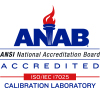 Posted on
Posted on 
In the dynamic and highly-regulated field of biotechnology, where precision and accuracy are paramount, ensuring rigorous quality control and assurance is an absolute necessity. Biotech companies rely heavily on data to make crucial decisions, conduct groundbreaking research, and develop life-changing products. Data logging, as a fundamental component of data management, plays a pivotal role in maintaining the integrity of this data. In this blog post, we’ll explore the best practices for data logging in biotechnology to enhance quality control and assurance.
To establish effective quality control in biotechnology, the first crucial step is to ensure comprehensive data collection. This involves strategically positioning data loggers to capture a wide range of critical data points, including variables such as temperature, humidity, pressure, pH levels, and more, tailored to the specific requirements of the biotech application. By collecting data comprehensively, you can closely monitor every aspect of the biotech process.
Maintaining data accuracy is paramount, achieved through regular calibration and validation of data loggers. This meticulous process ensures that the loggers provide precise and reliable measurements by calibrating them against traceable standards, with detailed calibration records maintained.
In the realm of biotechnology, real-time monitoring is invaluable. Data loggers should be capable of continuous data collection and real-time reporting, allowing for immediate alerts in case of deviations from predetermined parameters, facilitating swift corrective actions.
Given the sensitivity of biotech data, data security and integrity are of the utmost importance. It’s essential to employ data loggers with robust security features to protect sensitive information and implement secure storage systems to prevent unauthorized access or tampering.
Adherence to strict regulatory standards is a must for biotech companies. Therefore, it is imperative to choose data loggers that comply with industry-specific regulations and standards, documenting their conformity to streamline compliance reporting.
Finally, harness the power of advanced data analysis tools to extract meaningful insights from the collected data. Generate comprehensive reports that offer a clear overview of your quality control measures and outcomes, providing invaluable support for audits and informed decision-making.
Data logging is a cornerstone of quality control and assurance in biotechnology. By following these best practices holistically, biotech companies can ensure the accuracy, reliability, and security of their data. This, in turn, supports research and development efforts, helps meet regulatory requirements, and ultimately contributes to the advancement of biotechnology for the benefit of society.










